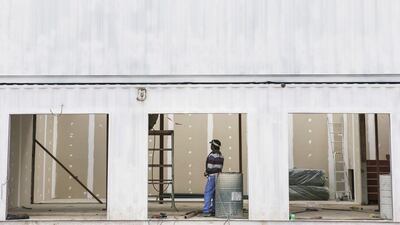UAE companies waited twice as long as last year to receive payments, says the French credit insurer Coface.
The company, which specialises in protecting clients from their customers defaulting, said 2016 was a tumultuous year for trade, which meant many companies had to wait twice as long for payment as a year earlier.
It did not disclose how many companies it works with in the country.
The construction sector was among the latest payers, with companies delaying payments by an average of 123 days longer that the contracted payment schedule.
General trading was next on the list, delaying payments by an average of 47 days, and the food sector by an average of 34 days.
About 800 companies were categorised as “runaways” in Dubai alone – leaving the country because they were unable to pay their debts.
The figure from the French credit insurer comes as some banks also report rising loan defaults across the Emirates.
“We have seen our business jump 63 per cent in the last two years as firms sought a way of mitigating risk,” said Massimo Falcioni, the chief executive of Middle East countries at Coface.
He said the UAE’s impending insolvency law would help small and medium-sized enterprises (SMEs) in times of economic uncertainty.
“I believe 2017 will be better than 2016 because many of the fragile firms are no longer in the UAE. Also firms have rationalised and streamlined their businesses lessening their labour costs by 35 to 45 per cent, reviewed credit policies and some now demanding advance payment.”
The credit management firm believes the oil price will close the year at $60 per barrel and Abu Dhabi, because of its dependence on hydrocarbons, will continue to experience a slowdown in 2017.
It expects growth to be being driven by the tourism and finance sectors, with the construction industry continuing to experience difficulties. It expects UAE GDP to grow by 2.5 per cent this year.
ascott@thenational.ae
Follow The National's Business section on Twitter


